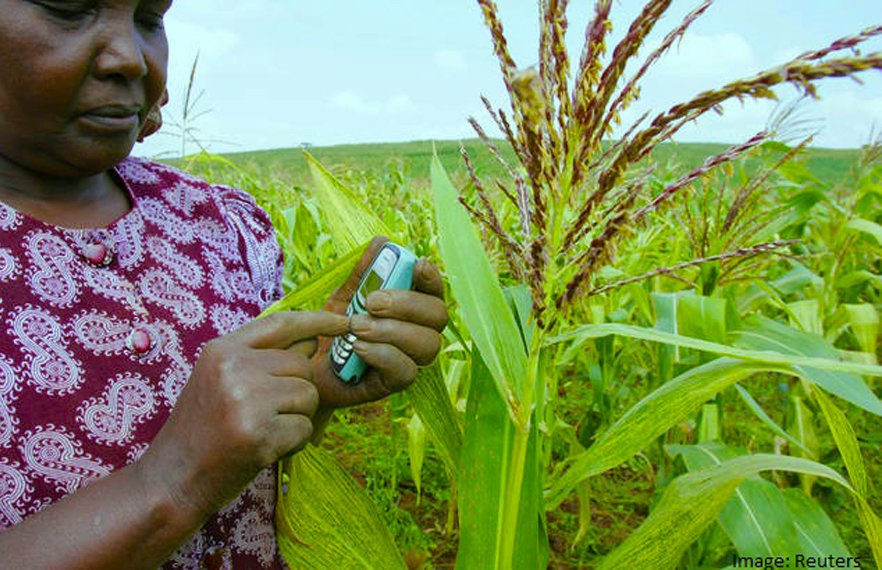Mobile money has been tremendously successful in East Africa. In Kenya and Tanzania people use their mobile phones to transfer money through a mobile currency called M-Pesa. M-Pesa was launched in 2007 by safaricom and vodacom in Kenya and Tanzania. It has really opened up financial opportunities in places where there may be no banks and no possibility of using credit cards. It also offers a better way for people to be able to send money to one another. Mobile Money is definitely promoting revolutionary development and entrepreneurship in Africa as it was never seen before.
How exactly does mobile money works ? Miriam Mannak tries to explain the process for Technology Review mentioning how the service enables the cell phone owners to essentially use their mobile phone like a bank card. The user registers with an agent of M-Pesa (that means mobile money in swahili) and then they can upload money onto the phone. This money is then used to carry out a variety of different transactions that range from paying for the electricity bill through to making purchases of groceries. This has led to a situation where in Tanzania monthly M-Pesa transactions total $820 million. In Kenya the value for the first six months of 2014 was $12 billion, up by thirty percent since the same period in the prior year. Users are reported to find the service very beneficial because it is much cheaper than paying for the monthly account fees that a bank would charge, and a lot of transactions are free, including electronic transfers.
Expanding M-Pesa To New Markets
Despite its incredible success in Kenya and Tanzania, M-Pesa has been struggling to get the service adopted elsewhere in the world. The service is currently offered in ten countries. In 2014, Vodafone launched M Pesa in some Eastern European countries, such as Romania. Romania thought to be a good alternative to the launch of M-Pesa because its population still uses a lot cash. However, it is reported that 100,000 or more of the total number of M-Pesa’s total of 186,000 authorised agents are still found in Kenya. Understanding the reasons why the service has not been so heavily adopted in other places will be critical for the company to be able to expand to new markets and continue to grow. In South Africa the company re-launched its services in 2014, and it is still waiting to see how that will go. Its initial foray into South Africa in 2010 led to just 100,000 users signing up, rather than the hoped for 10 million people. This was very disappointing for the company.
Perhaps one of the problems was that M-Pesa decided to initially launch in South Africa in 2010 by copying the exact same approach that it had taken in Kenya. What works in one place may not necessarily work in another of course, since places are different and people are different with different needs. Another of the problems that impacted the launch was that there were insufficient agents to help customers with the uploading and downloading, according to the manager responsible for the re-launch in South Africa.
The good news is that M-Pesa has made the process much simpler for registering agents. This has led to an increased number of agents. The number of agents has increased from 800 to 8,000. In addition it will be possible for users to utilise their mobile wallet in all shops, which provides the incentive for customers to consider using it as it is easy to do so. M-Pesa has also introduced a voucher system. This is familiar to South Africans because it works in a similar way to that of the mobile phone credit system that is already in place there. It is hoped that the low cost option that this provides will be another deciding factor in getting customers to start using the service, especially the fact that so much can be done for free.
So far the early figures from the campaign have been encouraging. The company has been relaunched in South Africa for four months. During that time user numbers grew considerably. They increased from 100,000 to 650,000. In addition the company has had more transactions in that time than in its whole time in the country so far between 2010 and 2014, so whatever the company is doing this time around it is certainly doing something right.
M-Pesa’s bad experience in South Africa serves as a reminder to marketers everywhere that even if a product or service may be really helpful and interesting to a target market, copying a marketing approach and simply transplanting it to a new place without consideration of all of the differences is likely to lead to failure. Marketers should consider the specific target market’s needs, preferences and desires and how they differ from other countries of operation. Then a campaign can be created that will really attract customers.

Paula Newton is a business writer, editor and management consultant with extensive experience writing and consulting for both start-ups and long established companies. She has ten years management and leadership experience gained at BSkyB in London and Viva Travel Guides in Quito, Ecuador, giving her a depth of insight into innovation in international business. With an MBA from the University of Hull and many years of experience running her own business consultancy, Paula’s background allows her to connect with a diverse range of clients, including cutting edge technology and web-based start-ups but also multinationals in need of assistance. Paula has played a defining role in shaping organizational strategy for a wide range of different organizations, including for-profit, NGOs and charities. Paula has also served on the Board of Directors for the South American Explorers Club in Quito, Ecuador.












